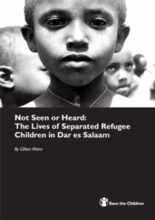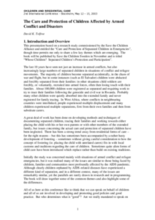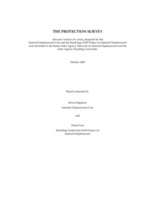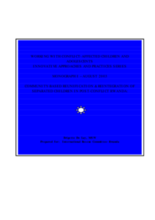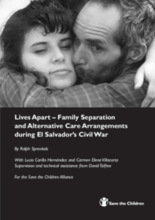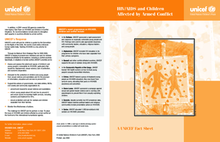Displaying 491 - 500 of 516
A study on the lives of separated refugee children in Dar es Salaam. The study highlights their experiences of abuse and discrimination, and their negative perception of refugee camps.
Documents ways in which youth are mobilized to support political and military agendas, and how the construct of youth has been employed for political change.
Overview of a research study which provides guidelines for care of separated children in large-scale emergencies, focusing on the negative impact of residential care, extended family care, spontaneous and agency fostering, adoption, and alternative placements for adolescents.
Report of a field-based study of international protection for internally displaced persons. Presents conclusions and recommendations for policy.
Programmatic methodology and key steps for reintegrating institutionalized children back into the community in a post-conflict environment. Contains comprehensive assessment toolkit in document annex.
A qualitative evaluation of child soldiering in the East Asia and Pacific region based on accounts of current and former child soldiers. Includes comprehensive guidelines for interviewing children about their experiences with child soldiering.
This report details the situation of disappearing children during the El Salvadorian civil war. It describes the process of tracing and reunifying children with their families, as well as alternative care arrangements for separated children.
Outlines links between HIV/AIDS and armed conflict, with emphasis on their joint impacts on children. Summarizes key priorities for dealing with HIV/AIDS, children, and conflict.
Discusses the needs of women and girls during demobilization and reintegration programs and aims to identify strategized that minimize gender discrimination. Includes detailed recommendations and gender-sensitive suggestions for questionnaires.
Outlines national efforts to disarm, demobilize, and reintegrate former child soldiers with respect to specific political contexts. Includes lessons learned, future challenges, and recommendations.

